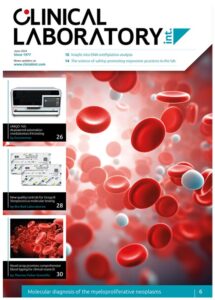‘Getting to zero’: first the good news
It is thirty years since the first diagnoses of AIDS were reported, since when, according to the most recent UNAids report, 25 million people have died from HIV-related causes and around 34 million people are currently living with the virus. However, as we enter the fourth decade of this devastating pandemic, there is certainly some light at the end of the tunnel, reflected in the theme that was adopted for this year’s World AIDS Day and until 2015: ‘Getting to Zero’. Although more aspirational than achievable, very real progress has been made.
The good news is that the number of AIDS-related deaths last year was the lowest (1.8 million deaths) since the peak of 2.2 million deaths in 2005, predominantly because of increasing access to antiretroviral treatment (ART) in low- and middle-income countries where the disease burden is heaviest, and where nearly seven million people are now receiving appropriate therapy. The UN-backed Global Fund against AIDS, TB and Malaria has played a significant role in this achievement. The incidence of HIV has also fallen in 33 countries, two thirds of which are in sub-Saharan Africa. Not only has ART reduced transmission, including vertical transmission, of the virus, but education and condom provision, more widespread HIV testing even in low-resource settings and counselling if necessary have all had a large impact. While efforts to introduce an effective HIV vaccine continue to be disappointing, results from trials on the pre-exposure use of antiretrovirals for prophylaxis are encouraging, and more easily tolerated drugs, such as rilpivirine, will improve life for some patient groups.
So what is the bad news? Firstly in some Western countries, where infected people can be diagnosed and treated early and have a near-normal lifespan, the incidence of HIV is actually increasing. And more important globally, there are still around ten million people waiting for treatment, the number of people with new infections remains higher than the number of people starting ART, and the staunch efforts of the Global Fund may now be affected by the financial fraud which was exposed in four recipient countries earlier this year as well as by the global economic crisis. Last month it was revealed that whilst international donors (the principal donors are the US, Germany, France and Japan) have been asked for donations totalling around fifteen billion Euros, the Global Fund has received only eight and a half billion Euros, which is lower than the amount needed to maintain its current programmes for the next three years. It is indeed a tragedy if millions of people continue to suffer from HIV because of the greed and mismanagement of a powerful few.



